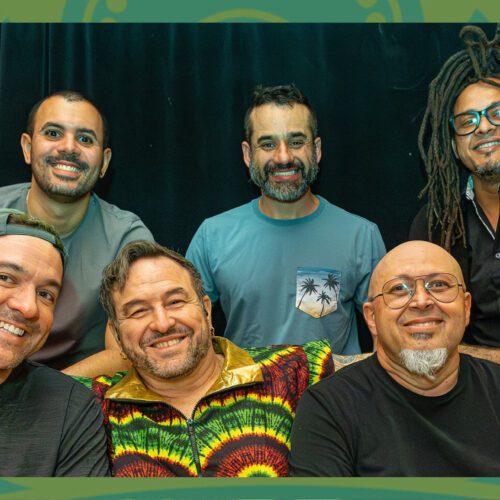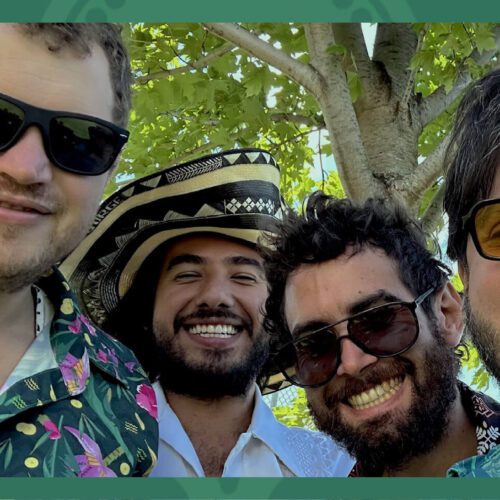Additional Information
Rebecca Jean is Haïbécoise, as she says herself. This unique identity, based on dual belonging, has been built up over the years. But it is now well established and proudly claimed.
A concert as part of the Festival international Nuits d’Afrique 2023, on July 20, is just the prelude to several others to come across Quebec during the summer. The singer whose grandparents “ploughed the land“, like those in Mes Aïeux (which she quotes from a song from the Quebec trad music band), is only too happy to meet one of the two halves of her cultural people, that of Haitian immigrants and that of regional Quebec.
In PAN M 360’s opinion, an artist like her should also have her own stage at the Francos (Les Francofolies Festival). The fact that this is not the case shows that there is still work to be done to decompartmentalize many artists from so-called “diversity”. There are more and more of them, it’s true, but still too many remain unfairly on the sidelines. Anyway, that is for another debate…
I met up with Rebecca Jean and we talked about her cultural roots, French songs (which she grew up listening to) and the language that she loves to protect and help the younger generation discover.
PAN M 360: Hello Rebecca. Last year you released the album Antidote, with which you’ve been touring all over Quebec ever since. The album shows a fine melodic quality in your songs, as well as a nod to Quebec and French chanson. For example, you quote Mes Aïeux in Haïbécoise…
Rebecca Jean: Yes, that’s true. I like to remember that my grandparents ploughed the land too! We have so much in common. We need to reiterate these things because we’re too often overwhelmed by details that divide us. I also did an adaptation of Yves Duteil’s La langue de chez nous and Charles Aznavour’s Hier encore. I would have liked Mr. Aznavour to hear my version of Hier encore, but it was too late. On the other hand, I sent my version of La langue de chez nous to Yves Duteil and he really liked it. I’m delighted.
PAN M 360: Why is this important to you?
Rebecca Jean: I grew up listening to this music, loving the lyrics. It nourished me throughout my youth. I want to give that love back to the younger generation. In addition to all my own compositions of course, which make up the bulk of my output, and where French is very important.
PAN M 360: So you grew up in a very Francophile family environment…
Rebecca Jean: That’s right. This also means that my Haitian Creole roots were not very present in my home. My father listened to a few Haitian songs but in the style of the great French chanson. I didn’t know Konpa, Zouk and those other more typically Haitian styles. It was as an adult that I had to make up for lost time, discover these rhythms, the artists and so on. That’s when I realized that all this was going on inside me without me even knowing it!
PAN M 360: When listening to Haïbécoise and other songs, one gets the impression that your dual identity is very harmonious and fully assumed. Has it always been this way, or is it the result of a hard process?
Rebecca Jean: Yes, it was a process. When I go to Haiti, people don’t think I’m 100% Haitian. In Quebec, people still ask me where I’m from! To make it on stage, you feel you have to put in a lot more effort. You always have to prove yourself. But Antidote is an album of healing! It’s about reconciliation: between men and women, between men and nature, between parents and children. Ultimately, it’s a reconciliation between the two fundamental poles of my identity.
PAN M 360: Was this self-built peace and serenity accompanied by family pressure regarding the “viability” of an artistic career?
Rebecca Jean: Oh yes, absolutely! It’s classic: when you come from an immigrant family, you’re pushed into professions like lawyer, doctor and so on. Art isn’t seen as a profession. It’s a natural activity, something you can do on a daily basis for fun. But you can’t make a living from it. I had to prove myself. When I got my first grant, things started to change! It was a substantial amount and my mother felt she had less to worry about. But I can understand how she felt: she had sacrificed so much, worked so hard and hustled so hard to give us the best options for the future that she was scared to death to see me having hard times. Now she understands and is even the first to send my videos to all her friends.
PAN M 360: Do you have any other projects in the pipeline?
Rebecca Jean: I’d like to release a music album for children. I’d like today’s youth to have role models of diversity, much as I was touched by Passe-Partout. I’d like them to see the same thing but through the eyes of families from cultural communities. To show all the things that are, at heart, similar to those of “native” Quebec families.
I also have a project underway with the artist Jean Jean Roosevelt, a star of Haitian culture. We’re going to Africa for a month at the end of August to work on it.
PAN M 360: Let’s imagine the next St. Jean-Baptiste Day show, for which you would be on stage with your ideal artists from the Quebec scene. What would the line-up look like?
Rebecca Jean: Oh, wow… what a great question… Wait a minute. I’d say Les Cowboys fringants. They have great poetry and great melodies. Mes Aïeux of course, then Louis-Jean Cormier and Karkwa. Then Elisapie and Sarahmée.
Rebecca Jean will perform on July 20 at 8:30 PM at Club Balattou. INFO AND TICKETS HERE!
























